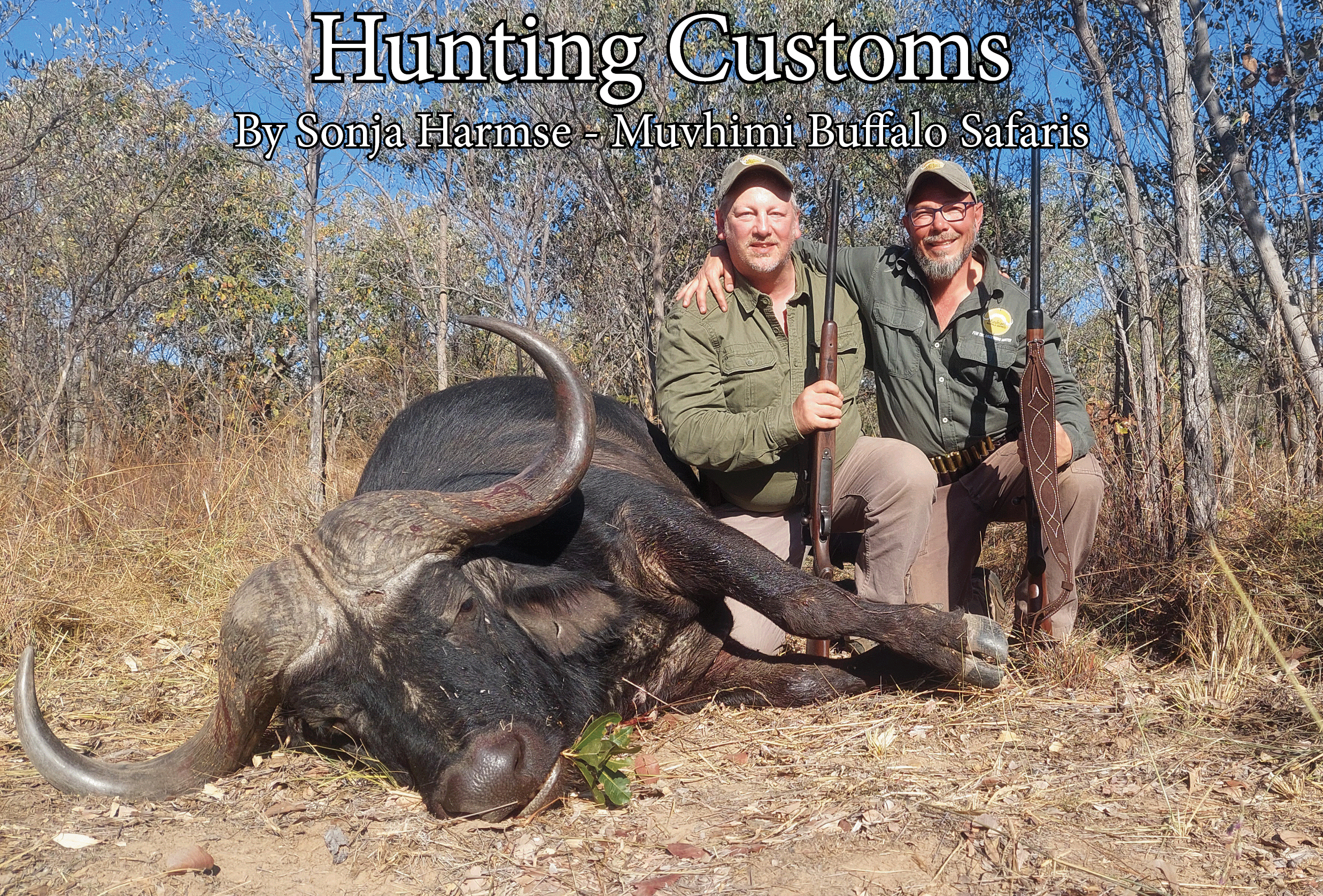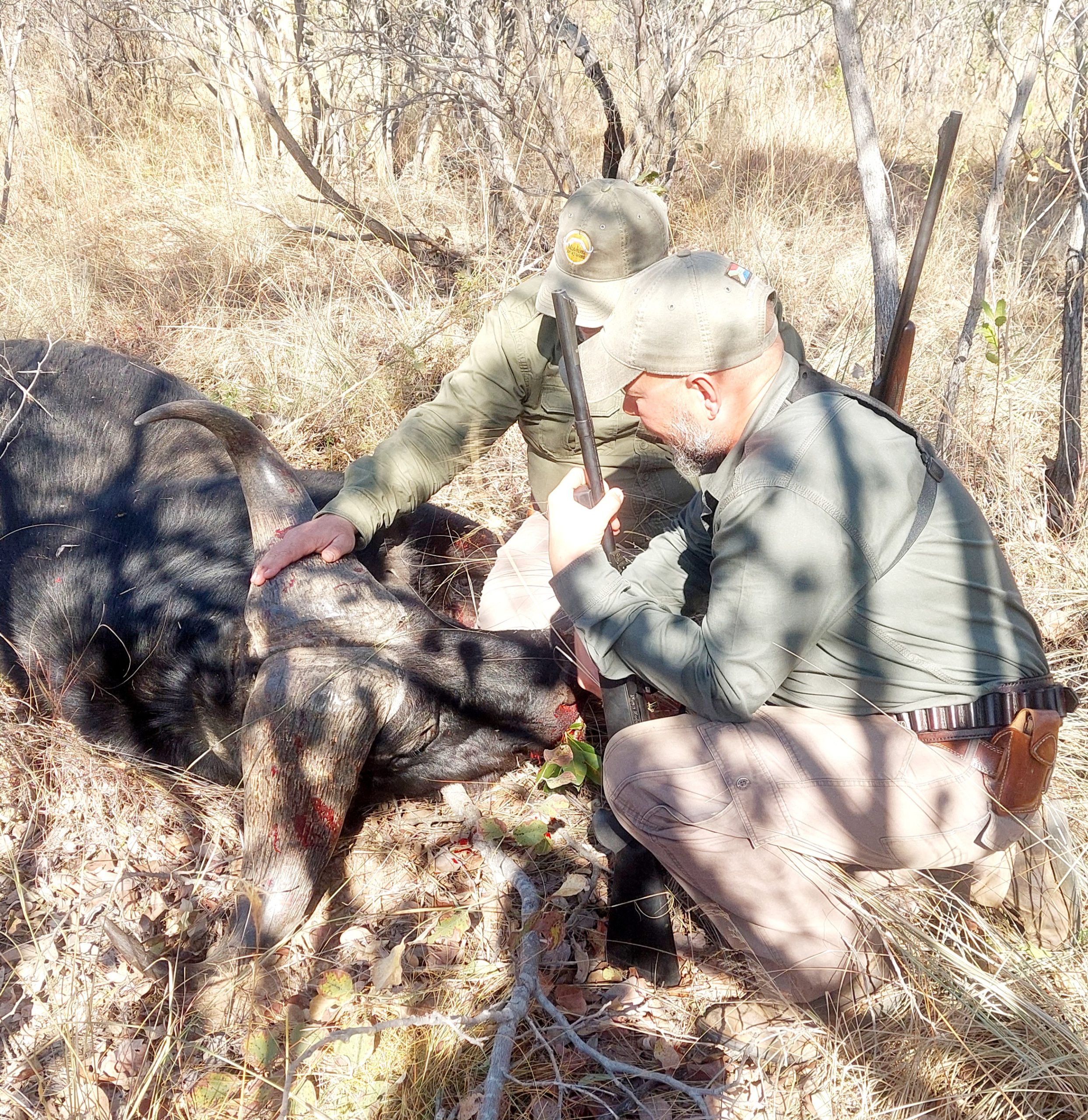Earlier this year we guided a German client on his first Buffalo hunt in Africa. When the Buffalo fell, Chris offered the customary Weidmansheill or Last Bite, as a sign of respect to both the animal and the hunter. What struck me was how our client, Gerolf Blittersdorf, kneeled next to the Buffalo, patted him on the shoulder and thanked him for the hunt and his life. I thought this was a very beautiful gesture. Reflecting on the hunt, it dawned on me that there were small nuances which I observed, in the way Gerolf conducted himself during the hunt. It was different to hunting with an American client for instance and it tickled my curiosity about the different hunting customs around the world.
Gerolf, a seasoned hunter, and the owner of hunting guide training schools in Germany, was for obvious reasons the perfect person to speak to regarding the hunting customs of Germany. He gladly offered me access to a trusted site, which is used during the hunting training, so that I could read up more about this. It was indeed a fascinating read, and I thought I would share some of this newly gained knowledge with our readers who may encounter German hunters.






